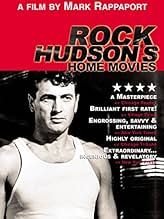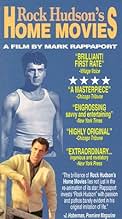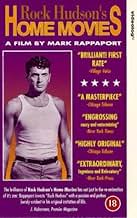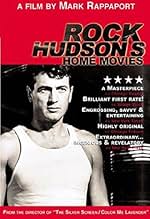Ajouter une intrigue dans votre langueDocumentary about the career and eventual death from AIDS of actor Rock Hudson.Documentary about the career and eventual death from AIDS of actor Rock Hudson.Documentary about the career and eventual death from AIDS of actor Rock Hudson.
- Prix
- 1 victoire et 1 nomination au total
Lauren Bacall
- Self
- (archive footage)
Cyd Charisse
- Charlotte King
- (archive footage)
Doris Day
- Jan Morrow
- (archive footage)
Angie Dickinson
- Self
- (archive footage)
Kirk Douglas
- Self
- (archive footage)
Linda Evans
- Self
- (archive footage)
Phyllis Gates
- Self
- (archive footage)
Rock Hudson
- Self
- (archive footage)
Burl Ives
- Dr. Brits Jansen
- (archive footage)
Otto Kruger
- Edward Randolph
- (archive footage)
Paul Lynde
- Mr. Akins
- (archive footage)
Dorothy Malone
- Self
- (archive footage)
Jeff Morrow
- John Doherty
- (archive footage)
Maria Perschy
- Isolde 'Easy' Müller
- (archive footage)
Paula Prentiss
- Abigail Page
- (archive footage)
Avis en vedette
This docu (more like a video essay) seems to upset people who think Rock Hudson and John Wayne are the picture of masculinity. It's really funny if you are into looking deeper into movies rather than taking them at face value.
And regarding the quality of the clips, this was made when you only had access to VHS tapes, ffs.
And regarding the quality of the clips, this was made when you only had access to VHS tapes, ffs.
This film is unwatchable... The picture quality itself is very poor (2011 DVD). The title is misleading... there are no Rock Hudson home movies... This is a selection of poor quality video clips from Rock Hudson films with an actor supposedly speaking for Rock. I very much doubt he would have agreed with ANYTHING this so called documentary has to say (it says nothing about Rock but speaks volumes about the director of this garbage).
I bought this as I thought it would give an insight to Rock Hudsons private life and thoughts, it does nothing for the man or the actor. He was a man of his time and should be appreciated for the roles he created on screen... Avoid this nonsense.
I bought this as I thought it would give an insight to Rock Hudsons private life and thoughts, it does nothing for the man or the actor. He was a man of his time and should be appreciated for the roles he created on screen... Avoid this nonsense.
Rock Hudson's Home Movies (1992)
** (out of 4)
Director Mark Rappaport has made some rather unique documentaries in his time. He basically takes a subject and twists and turns everything in order to fit whatever story he wants to tell. In this movie he plays the narrator, a person acting as if they're Rock Hudson, as the actor comes out and admits he's gay.
There's no question that this documentary is going to upset many people and it's easy to see why. For starters, it's common knowledge now that Hudson died of AIDS and was gay. This documentary basically takes clips from all of Hudson's movies and twists the dialogue to make it seem that there were "clues" to this in all of his movies.
I will admit that this is a rather well-made film and there's no question that the director is a talented filmmaker who knows how to edit and twist things in order to get what story he is going for. This film is a tad bit silly on one hand because it takes famous movies and takes things so out of context that it's hard to take it too serious. At the same time, twisting the movie's dialogue into fitting some other agenda is what's going to make people most upset.
ROCK HUDSON'S HOME MOVIES isn't a complete success and as I said, I'm sure many will feel it cross the lines. What lines those are will be up to the viewer.
** (out of 4)
Director Mark Rappaport has made some rather unique documentaries in his time. He basically takes a subject and twists and turns everything in order to fit whatever story he wants to tell. In this movie he plays the narrator, a person acting as if they're Rock Hudson, as the actor comes out and admits he's gay.
There's no question that this documentary is going to upset many people and it's easy to see why. For starters, it's common knowledge now that Hudson died of AIDS and was gay. This documentary basically takes clips from all of Hudson's movies and twists the dialogue to make it seem that there were "clues" to this in all of his movies.
I will admit that this is a rather well-made film and there's no question that the director is a talented filmmaker who knows how to edit and twist things in order to get what story he is going for. This film is a tad bit silly on one hand because it takes famous movies and takes things so out of context that it's hard to take it too serious. At the same time, twisting the movie's dialogue into fitting some other agenda is what's going to make people most upset.
ROCK HUDSON'S HOME MOVIES isn't a complete success and as I said, I'm sure many will feel it cross the lines. What lines those are will be up to the viewer.
During the late 50s and sixties, the critical world embraced a concept known as the auteur theory. As presented by the French, the theory suggested that some directors were the "authors" of their films because they, basically, left their fingerprints all over the finished films. Film scholars examined films frame by frame looking for repeated themes, philosophies, symbolism, tricks and trademarks that directors would utilize in storytelling. The auteur theory has some validity, as well as some drawbacks, not the least of which being the tendency to equate bad films with the good, to praise redundancy and similarities over innovation and variety and to celebrate the artist more than the art.
The auteur theory was applied mostly to directors, sometimes to writers, occasionally to producers, but never to actors. The exception being -- sorta -- ROCK HUDSON'S HOME MOVIES. This ragtag documentary assembled by Mark Rappaport uses the methodology usually granted to studying directors to examine the various films of the late actor, not so much to grant him authorship status, but to look for cracks in the actor's closet door. Part scholarly research, part scandal sheet journalism, part trivia game, part student project, the film attempts to seriously examine Hudson's gay legacy and to ridicule his well-crafted screen image as the ultimate in heterosexual masculinity. The result is as creepy as it is scientifically unsound.
Rappaport apparently scoured his video tape collection and the late, late show for snippets of film from Rock's movies that somehow could be interpreted as a commentary on Hudson's secret sex life. This hodgepodge of clips (presumably not legitimately acquired from their sources) is a collection of grainy, blurry copies of copies, often with equally bad sound. The film, however ambitious, doesn't look particularly professional. Even so, the effort is notable and the finished product cohesive. For an amateur film, it is thoughtfully crafted.
And some of it is clever and amusing, especially, for instance, when Rappaport takes a look at the Rock Hudson/Doris Day romantic comedies of the 50s which frequently featured Hudson placed in dubious situations where his manhood and masculinity are brought into question. The gay man playing a straight man pretending to be a gay man seemed to be a joke shared by most everybody in Hollywood and with virtually nobody in the audience.
Yet, there is something grimly dishonest and perhaps even mean-spirited about the film's attitude. Rappaport takes his snippets of film, dialogue and images and uses them out of context. Any mention of the word "gay," any reference to marriage, any interaction between Rock and another man is interpreted as having a homosexual subtext, even if that was obviously not the intent; the irony being apparent only in hindsight. Likewise, any reference to death is noted as a harbinger of AIDS, even if it is buried in a film made twenty or thirty years before Hudson's actually died of the disease. To say that Rappaport is reaching in some of his assumptions is an understatement; but he packs his innuendoes into tight clusters of montage, hoping that the viewer won't notice the weakness of his evidence.
If the film were presented as merely an amusing trifle, with Rappaport's assumptions made with tongue firmly in cheek, then his questionable approach would be forgivable. But the film takes itself far too seriously, especially in presenting the narrative in the first person. On screen Hudson narrates through Eric Farr, an actor who doesn't look, sound or act in any way that brings the real Hudson to mind. Yet, he narrates the clips as though he were speaking as Rock, presenting Hudson as being bitter, condescending, snide and sarcastic. Quoting out of context or even paraphrasing is one thing, but to totally fabricate another man's thoughts crosses an ethical and dramatic line. Rappaport apparently thinks by having his opinions expressed as though they were really Hudson's that they would have greater credibility. But to use a distorted image of Hudson to criticize the way Hollywood distorted Hudson's image seems more hypocritical than inspired. And to assume that homosexuality should be obvious to anyone who watches for the clues is a bit homophobic, gaydar being far from an exact science.
Clip films like this are not unusual -- Hudson hosted one such film on the career of Marilyn Monroe -- but generally the point is to celebrate the life of the subject. ROCK HUDSON'S HOME MOVIES presents its subject with a mixture of contempt and pity, seemingly equally angered by the way Hollywood used the star and by the way the actor allowed himself to be used. Rappaport tries to make us see Hudson's story as a tragedy: Gay man being oppressed into silence by homophobic society. But, even taking into account his well publicized death, Rock Hudson seems to have led a remarkably successful and rewarding life, maintaining his star status, earning critical respect and enjoying genuine admiration by the public and his peers, right up to and after his death. The one part he never seemed to play was martyr; this movie can't change that.
The auteur theory was applied mostly to directors, sometimes to writers, occasionally to producers, but never to actors. The exception being -- sorta -- ROCK HUDSON'S HOME MOVIES. This ragtag documentary assembled by Mark Rappaport uses the methodology usually granted to studying directors to examine the various films of the late actor, not so much to grant him authorship status, but to look for cracks in the actor's closet door. Part scholarly research, part scandal sheet journalism, part trivia game, part student project, the film attempts to seriously examine Hudson's gay legacy and to ridicule his well-crafted screen image as the ultimate in heterosexual masculinity. The result is as creepy as it is scientifically unsound.
Rappaport apparently scoured his video tape collection and the late, late show for snippets of film from Rock's movies that somehow could be interpreted as a commentary on Hudson's secret sex life. This hodgepodge of clips (presumably not legitimately acquired from their sources) is a collection of grainy, blurry copies of copies, often with equally bad sound. The film, however ambitious, doesn't look particularly professional. Even so, the effort is notable and the finished product cohesive. For an amateur film, it is thoughtfully crafted.
And some of it is clever and amusing, especially, for instance, when Rappaport takes a look at the Rock Hudson/Doris Day romantic comedies of the 50s which frequently featured Hudson placed in dubious situations where his manhood and masculinity are brought into question. The gay man playing a straight man pretending to be a gay man seemed to be a joke shared by most everybody in Hollywood and with virtually nobody in the audience.
Yet, there is something grimly dishonest and perhaps even mean-spirited about the film's attitude. Rappaport takes his snippets of film, dialogue and images and uses them out of context. Any mention of the word "gay," any reference to marriage, any interaction between Rock and another man is interpreted as having a homosexual subtext, even if that was obviously not the intent; the irony being apparent only in hindsight. Likewise, any reference to death is noted as a harbinger of AIDS, even if it is buried in a film made twenty or thirty years before Hudson's actually died of the disease. To say that Rappaport is reaching in some of his assumptions is an understatement; but he packs his innuendoes into tight clusters of montage, hoping that the viewer won't notice the weakness of his evidence.
If the film were presented as merely an amusing trifle, with Rappaport's assumptions made with tongue firmly in cheek, then his questionable approach would be forgivable. But the film takes itself far too seriously, especially in presenting the narrative in the first person. On screen Hudson narrates through Eric Farr, an actor who doesn't look, sound or act in any way that brings the real Hudson to mind. Yet, he narrates the clips as though he were speaking as Rock, presenting Hudson as being bitter, condescending, snide and sarcastic. Quoting out of context or even paraphrasing is one thing, but to totally fabricate another man's thoughts crosses an ethical and dramatic line. Rappaport apparently thinks by having his opinions expressed as though they were really Hudson's that they would have greater credibility. But to use a distorted image of Hudson to criticize the way Hollywood distorted Hudson's image seems more hypocritical than inspired. And to assume that homosexuality should be obvious to anyone who watches for the clues is a bit homophobic, gaydar being far from an exact science.
Clip films like this are not unusual -- Hudson hosted one such film on the career of Marilyn Monroe -- but generally the point is to celebrate the life of the subject. ROCK HUDSON'S HOME MOVIES presents its subject with a mixture of contempt and pity, seemingly equally angered by the way Hollywood used the star and by the way the actor allowed himself to be used. Rappaport tries to make us see Hudson's story as a tragedy: Gay man being oppressed into silence by homophobic society. But, even taking into account his well publicized death, Rock Hudson seems to have led a remarkably successful and rewarding life, maintaining his star status, earning critical respect and enjoying genuine admiration by the public and his peers, right up to and after his death. The one part he never seemed to play was martyr; this movie can't change that.
Writer-director Mark Rappaport and actor-narrator Eric Farr lead us through selected clips of actor Rock Hudson's movies from the 1950s, '60s and '70s, highlighting the subtext in the dialogue passages with gay conjecture. An amusing idea, but not enough research was done. For instance, there's far too much coverage of the Rock Hudson-Doris Day-Tony Randall comedies--what about 1965's "Strange Bedfellows", which had some dandy lines rife with innuendo? There's some amusing footage of an unnamed movie where Burl Ives (in a bath towel) acts like Hudson's jealous lover (it was 1962's "The Spiral Road"), and the film-ballet of scenes involving Hudson removing his shirt or putting on his pants (usually in front of other men) is funny. Unfortunately, the film clips appear to be third-generation, VHS-recorded sequences that look even worse when they're freeze-framed for emphasis, and Farr's wilted delivery doesn't bring out Rappaport's intended sting. *1/2 from ****
Le saviez-vous
- GaffesIn the closing credits, Twilight for the Gods (1958) is incorrectly credited as "Twilight of the Gods (1958)."
- Citations
[first lines]
Rock Hudson: It was all up there.
- ConnexionsFeatures L'adieu aux armes (1932)
Meilleurs choix
Connectez-vous pour évaluer et surveiller les recommandations personnalisées
Détails
- Date de sortie
- Pays d’origine
- Sites officiels
- Langue
- Aussi connu sous le nom de
- Οι ερασιτεχνικές ταινίες του Ροκ Χάτσον
- Lieux de tournage
- société de production
- Consultez plus de crédits d'entreprise sur IMDbPro
- Durée
- 1h 3m(63 min)
- Couleur
- Mixage
Contribuer à cette page
Suggérer une modification ou ajouter du contenu manquant




































